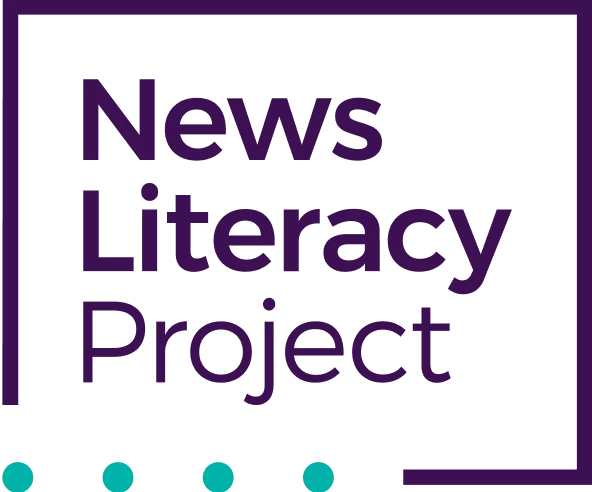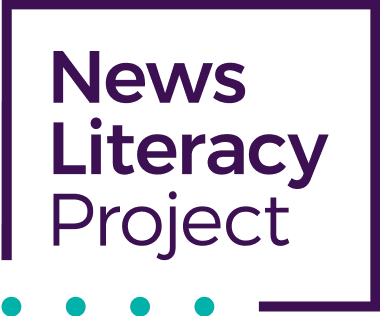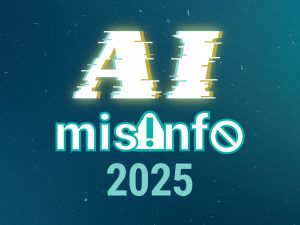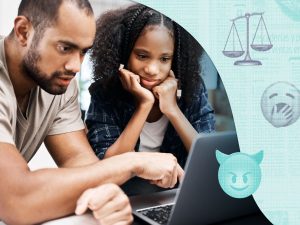Venezuelan reporter brings unique perspective to NLP
For Univision reporter Maria Alesia Sosa, the recent news that press freedom in the United States was now considered “problematic” by an international media watchdog group wasn’t as daunting as it might be to other U.S. reporters.
It’s not that she isn’t concerned about the trend — but she is from Venezuela, which is ranked 148th (the U.S. is 48th) out of 180 countries and regions on the Reporters Without Borders 2019 World Press Freedom Index. And that perspective means a lot to Sosa, who led a session on local journalism at the News Literacy Project’s NewsLitCamp® in Miami in April and is appearing in a video about the state of journalism in her home country for the “Press Freedoms Around the World” lesson on NLP’s Checkology® virtual classroom.
“Venezuela right now, we are under a dictatorship and there is zero freedom of the press,” said Sosa, who spent eight years as a reporter there before moving to Miami in 2016. “If you are against the government or if the government knows that you are against them, you will be chased, you will be attacked, you will be followed for your thoughts and for what you write.
“What I’ve really appreciated here is the freedom that I have to write, to do stories, and to report on whatever subject I want.”
Difficult, dangerous work
In Venezuela, mainstream media is dominated by government-owned newspapers and television stations. Reporters who are “driven by truth, and not by politics,” publish their work online to ensure that it will be seen, Sosa said. Reporting is difficult and can be dangerous; for example, Sosa said, when she tried to speak to shoppers in a grocery store about the scarcity of food, she was harassed and chased by the military. She said she could never get a complete answer — or access to what should have been public information — from government officials.
“In Venezuela you are not able to get data,” she said. “There’s no public data.”
By contrast, Sosa said of her work at Univision, “there hasn’t been a story that my boss tells me, ‘Don’t do this, don’t report it.’”
Earlier this year, Sosa and a colleague reported on the deaths of patients who underwent a popular, but often dangerous, type of plastic surgery at “cosmetic centers” in south Florida — facilities that the state Department of Health had no authority to regulate because they were not owned by physicians. As a result of their reporting, and that of other news organizations, the state legislature recently passed a bill, now awaiting the governor’s signature, that would, among other things, allow the state to suspend the operation of these centers, or shut them down entirely, if they were found to pose an “imminent threat” to the public.
“Actually, we changed the law,” Sosa said, calling the end result “surreal.”
“That’s the real sense of journalism, the real watchdog sense of journalism,” she added — something that she said “is impossible in my country. That won’t happen until we have fair institutions in my country.”
Sosa returned to Venezuela in 2017 to report on the ongoing protests against the government of President Nicolás Maduro — a trip where she said her life was in danger.
“That time was one of the most terrible attacks that I suffered,” she said. “Pro-government groups and thugs attacked me and my partner who was working with me. They attacked us with a knife.”
An urgent need
Sosa has great admiration for her former colleagues and other reporters who are still in Venezuela. She also is aware, from experience, how frustrating their work is because of the utter lack of press freedom.
“Their great jobs, their words have no effect,” she said. “I’m sure they will have someday. They win prizes and everything, but the best prize for this is when we change something.”
Reflecting on the climate in the United States, the spread of terms like “fake news,” and the public’s declining trust in media, Sosa understands the urgency of the News Literacy Project’s work. Journalists are “voices for the voiceless,” she said. “But if people don’t watch or don’t read us, we are no one.”
She was emboldened by the NewsLitCamp in Miami, which underscored for her the importance of journalists speaking to groups, such as educators, about their work so the public will understand and trust it.
“We have to open our minds and just tell more people how our jobs are done, how we do our work, how we corroborate,” she said.
She believes that if journalists stick to the facts and give readers and viewers a better understanding of how and why reporting is done — lessons learned throughout Checkology — then trust in journalism can be restored.
“To tell the world how important the facts are — that’s the only way that we reduce bias,” Sosa said.
Photo caption: Maria Alesia Sosa visited a U.S. Coast Guard site in March to report for Univision on the seizure of more than 27,000 pounds of cocaine (in black plastic bags). Photo courtesy Maria Alesia Sosa.
